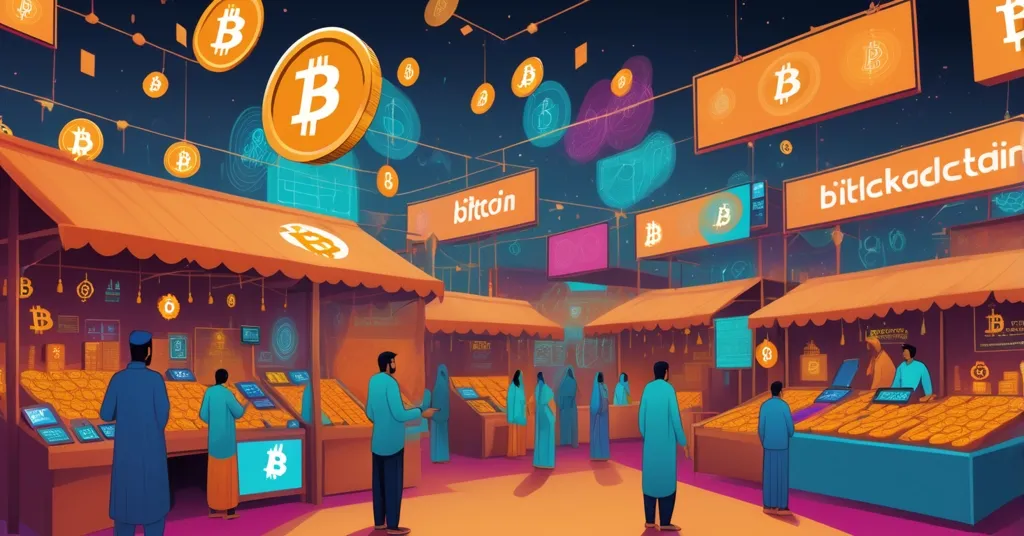Pakistan Launches PDAA to Regulate $25B Crypto Market, Aims for Web3 Hub

Pakistan Launches Digital Asset Authority to Regulate $25B Crypto Market
Pakistan introduces PDAA to regulate $25B crypto market
PDAA oversees Bitcoin, stablecoins, tokenized assets, wallets, DeFi
International support from WLF and Binance founder CZ
Aims to attract global firms and foster Web3 innovation
Pakistan is making a strategic leap into the world of cryptocurrency by launching the Pakistan Digital Assets Authority (PDAA), aiming to regulate its thriving $25 billion informal market. The PDAA will oversee a broad range of digital assets, including Bitcoin, stablecoins, tokenized assets (digital representations of real-world assets like real estate or art), wallets (secure digital storage for cryptocurrencies), and decentralized finance (DeFi) applications (financial services on blockchain without traditional banks).
The PDAA isn’t just about reining in the wild west of crypto; it’s a calculated move to create a safe haven for investors and lure global blockchain firms. The authority’s mission includes fostering Web3 innovation, promoting Bitcoin mining, and even allowing the tokenization of government assets. For a nation wrestling with economic challenges, this could be a lifeline, offering legal investment channels and support for Web3 startups.
Pakistan’s Finance Minister Muhammad Aurangzeb outlined the ambitious vision:
“The PDAA is not just about regulation. It’s also about creating a strong, forward-thinking system that invites foreign investment, protects users, and encourages Web3 innovation.”
The PDAA’s launch is bolstered by international partnerships, notably a deal with the Trump-backed World Liberty Financial (WLF) and the advisory role of Binance founder Changpeng Zhao (CZ) within the Pakistan Crypto Council. CZ, who recently stepped down as Binance CEO after pleading guilty to violating the Bank Secrecy Act in the U.S., brings his deep understanding of blockchain technology to aid Pakistan’s journey.
The PDAA will operate under FATF-compliant rules, ensuring that Pakistan’s crypto market aligns with global financial standards. This isn’t just about riding the crypto wave; it’s about reshaping the country’s financial landscape and positioning Pakistan as South Asia’s next big crypto hub.
Bilal Bin Saqib, a key figure in the Pakistan Crypto Council, shared his perspective on this transformative move:
“This isn’t just about crypto, it’s about reshaping the future of finance in Pakistan.”
While the excitement is palpable, it’s important to keep our feet on the ground. The PDAA faces hurdles like effective implementation and adherence to global standards. Regulatory enforcement and public adoption are challenges that Pakistan must navigate, but if successful, the rewards could be significant.
As we witness Pakistan’s bold dive into the crypto pool, it’s clear the country is not just testing the waters but aiming to become the Michael Phelps of blockchain finance. With the right balance of regulation and innovation, Pakistan could emerge as a beacon for blockchain-powered finance in South Asia.
Pakistan’s Crypto History
Pakistan’s relationship with cryptocurrencies has been a rollercoaster ride. Initially, the country banned crypto trading in 2018, only to lift the ban in 2020. Since then, the crypto market has exploded, driven by remittances and a hunger for alternative financial systems.
Potential Impact on Everyday Pakistanis
For the average Pakistani, the PDAA could mean safer and more accessible ways to invest in cryptocurrencies. It could also lead to new job opportunities in the growing blockchain industry and potentially attract foreign investment, boosting the overall economy. The impact on everyday Pakistanis could be profound.
Potential Risks and Criticisms
While the PDAA aims to foster growth and regulate the market, there are concerns about potential regulatory overreach. Critics worry that excessive regulation could stifle innovation and drive crypto businesses away. There’s also the risk of the PDAA becoming a tool for government surveillance or control over digital assets. Discussions on platforms like Reddit highlight these concerns.
Bitcoin Mining and Tokenization of Government Assets
Pakistan’s climate and energy resources position it as a potential hotspot for Bitcoin mining. The PDAA’s support for mining could lead to significant growth in this sector. Additionally, by allowing the tokenization of government assets, Pakistan could unlock new investment and liquidity opportunities, potentially transforming sectors like real estate and art.
Key Takeaways and Questions
- What is the Pakistan Digital Assets Authority (PDAA)?
The PDAA is a new regulatory body in Pakistan tasked with overseeing and regulating digital assets, including Bitcoin, stablecoins, tokenized assets, wallets, and decentralized finance applications.
- What is the estimated size of Pakistan’s crypto market?
Pakistan’s unofficial crypto market is estimated to be worth around $25 billion.
- What are the main objectives of the PDAA?
The PDAA aims to create a secure, investor-friendly environment, attract global blockchain firms, and foster Web3 innovation in Pakistan.
- What international collaborations has Pakistan engaged in to support its crypto initiatives?
Pakistan has signed a deal with the Trump-backed World Liberty Financial (WLF) and has brought on Binance founder Changpeng Zhao (CZ) as an advisor to the Pakistan Crypto Council.
- How does the PDAA plan to reshape Pakistan’s financial future?
By overseeing the crypto market, promoting Bitcoin mining, allowing tokenization of government assets, providing legal investment channels, and supporting Web3 startups, the PDAA aims to reshape Pakistan’s financial landscape and position it as South Asia’s next big crypto hub.
- What compliance standards will the PDAA adhere to?
The PDAA will operate under FATF-compliant rules to ensure international trust and legitimacy.
- What are the potential risks and criticisms of the PDAA?
Potential risks include regulatory overreach, stifling innovation, and concerns about government surveillance or control over digital assets.
- How might the PDAA impact everyday Pakistanis?
The PDAA could provide safer and more accessible ways to invest in cryptocurrencies, create jobs in the blockchain industry, and attract foreign investment to boost the economy.
- What role does Changpeng Zhao (CZ) play in the PDAA?
CZ, the founder of Binance, serves as an advisor to the Pakistan Crypto Council, bringing his expertise to help navigate the complex world of blockchain technology.
- How can readers stay updated on the PDAA’s progress?
Readers can follow reputable crypto news sources, join relevant online communities, and keep an eye on official announcements from the PDAA and the Pakistan government.



